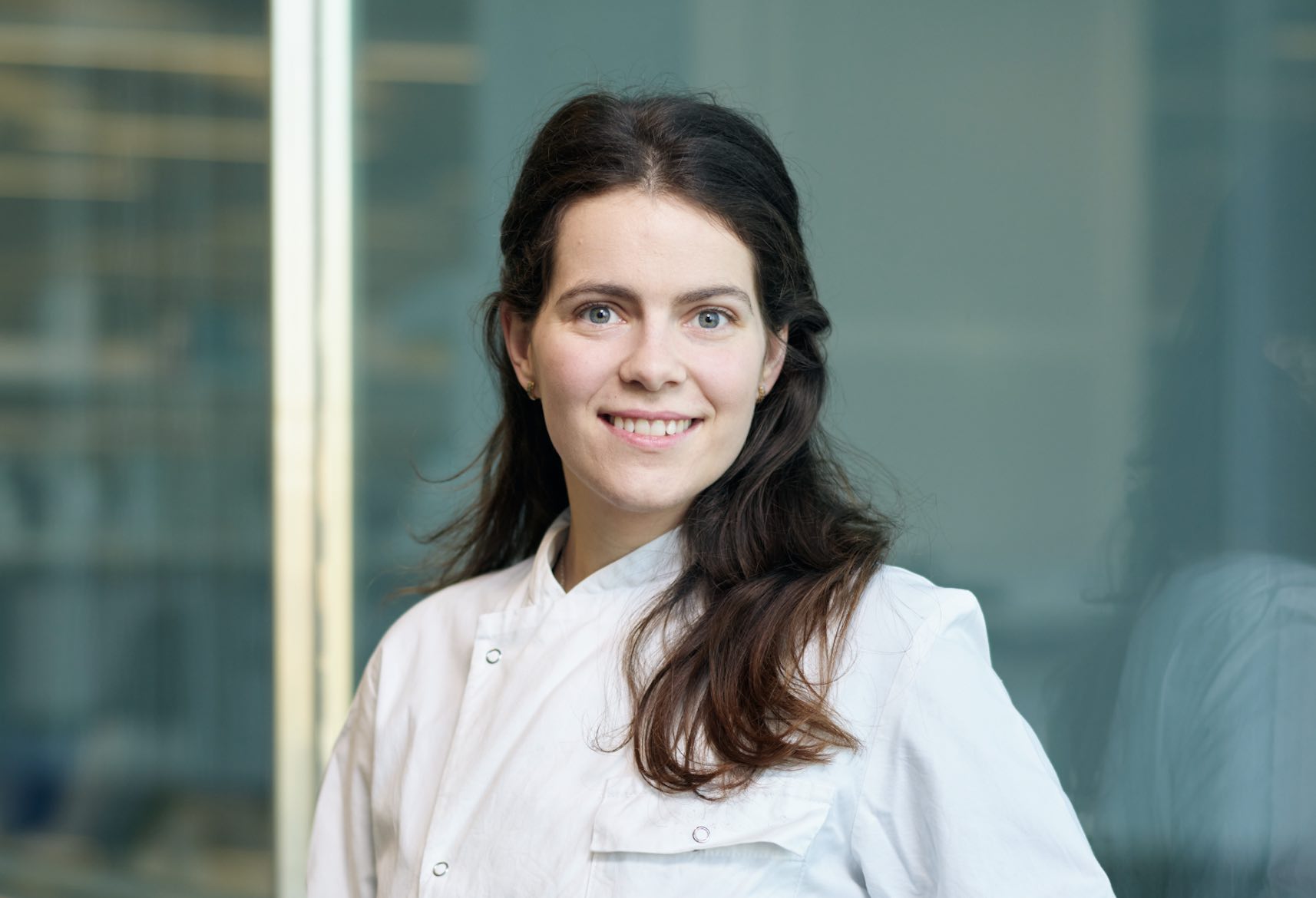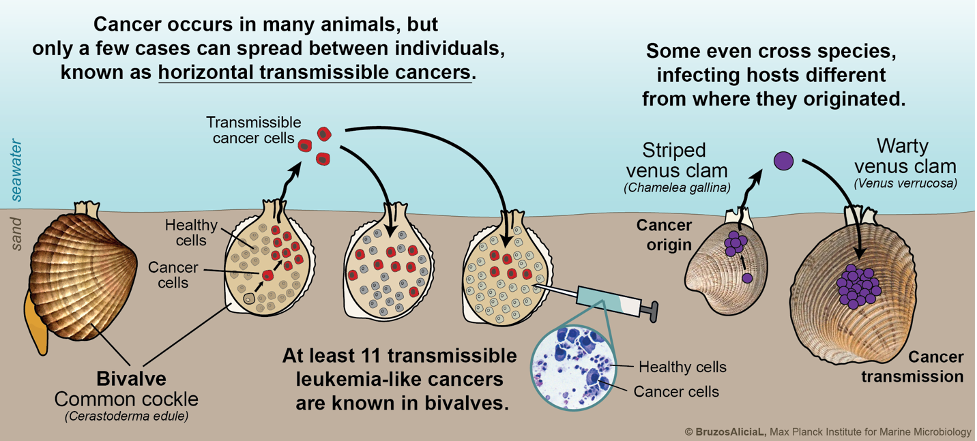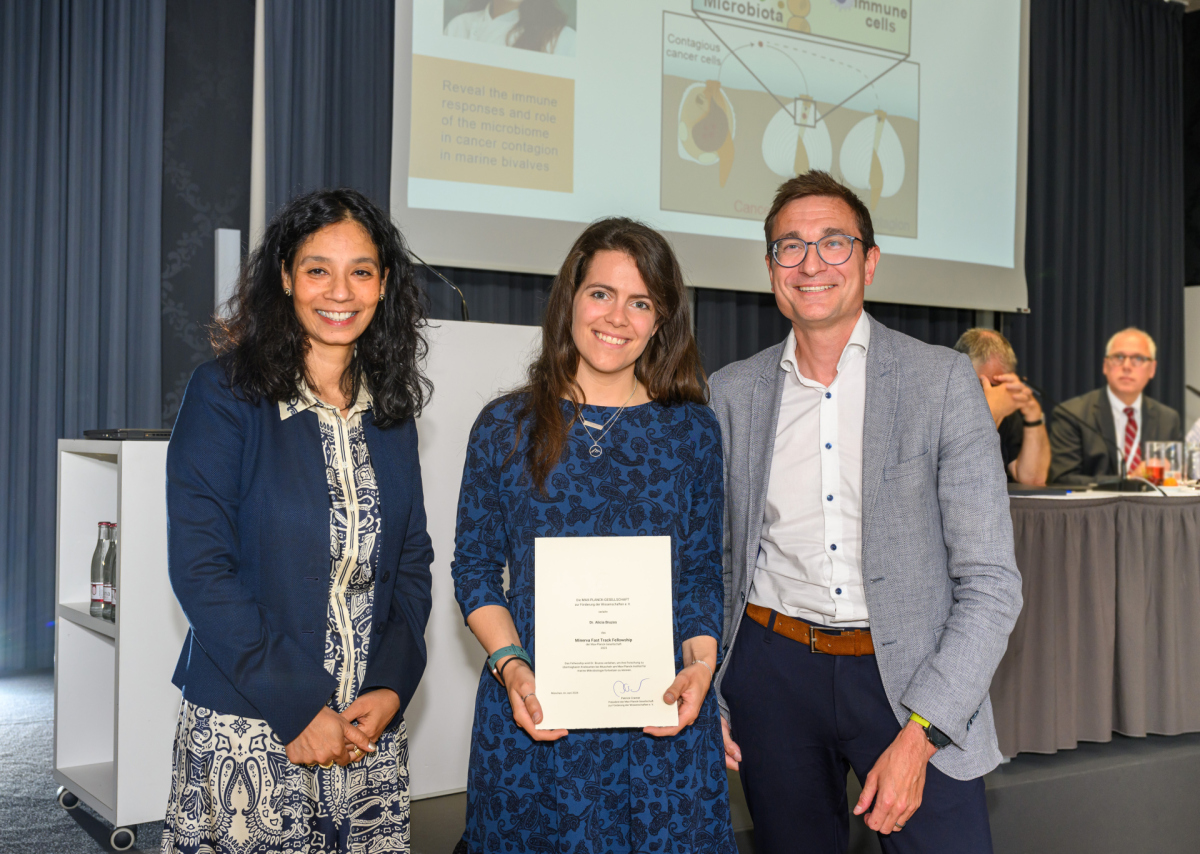- Departments
- Minerva Fast Track Research Group for Marine Transmissible Cancers
Minerva Fast Track Research Group for Marine Transmissible Cancers
Group Leader
Minerva Fast Track Research Group for Marine Transmissible Cancers
MPI for Marine Microbiology
Celsiusstr. 1
D-28359 Bremen
Germany
|
Room: |
2251 |
|
Phone: |

The Marine Transmissible Cancers Research Group led by Alicia L. Bruzos investigates how cancer cells can become contagious and spread among marine bivalves. We combine fieldwork, molecular techniques, multi-omics, and experimental approaches to understand the ecological and evolutionary dynamics of these unusual cancers, which challenge our definitions of cancer and disease transmission.
Our research sits at the interface of evolutionary biology, cancer genomics, and marine ecology, bridging molecular mechanisms with ecological processes to understand how cancer lineages adapt to new hosts and environments. Working in bivalves comes with unique challenges as they are not traditional model organisms in cancer research. But also provides extraordinary opportunities to discover new mechanisms of evolution of cancer cell transmission.
Two main research lines guide our work:
- Origins and evolution of transmissible cancers in the ocean: we trace the evolutionary history of contagious cancer lineages using multi-omic and phylogenetic approaches. By comparing independent cancer lineages across species, we aim to identify shared mechanisms that enable transmission and long-term persistence.
- Ecological dynamics and dispersal of cancer cells in marine environments: we study how host biology, and environmental stressors influence the spread and maintenance of transmissible cancers.
Our research contributes to understanding how cancer can metastasize beyond individual boundaries, offering a unique model for studying evolution.

